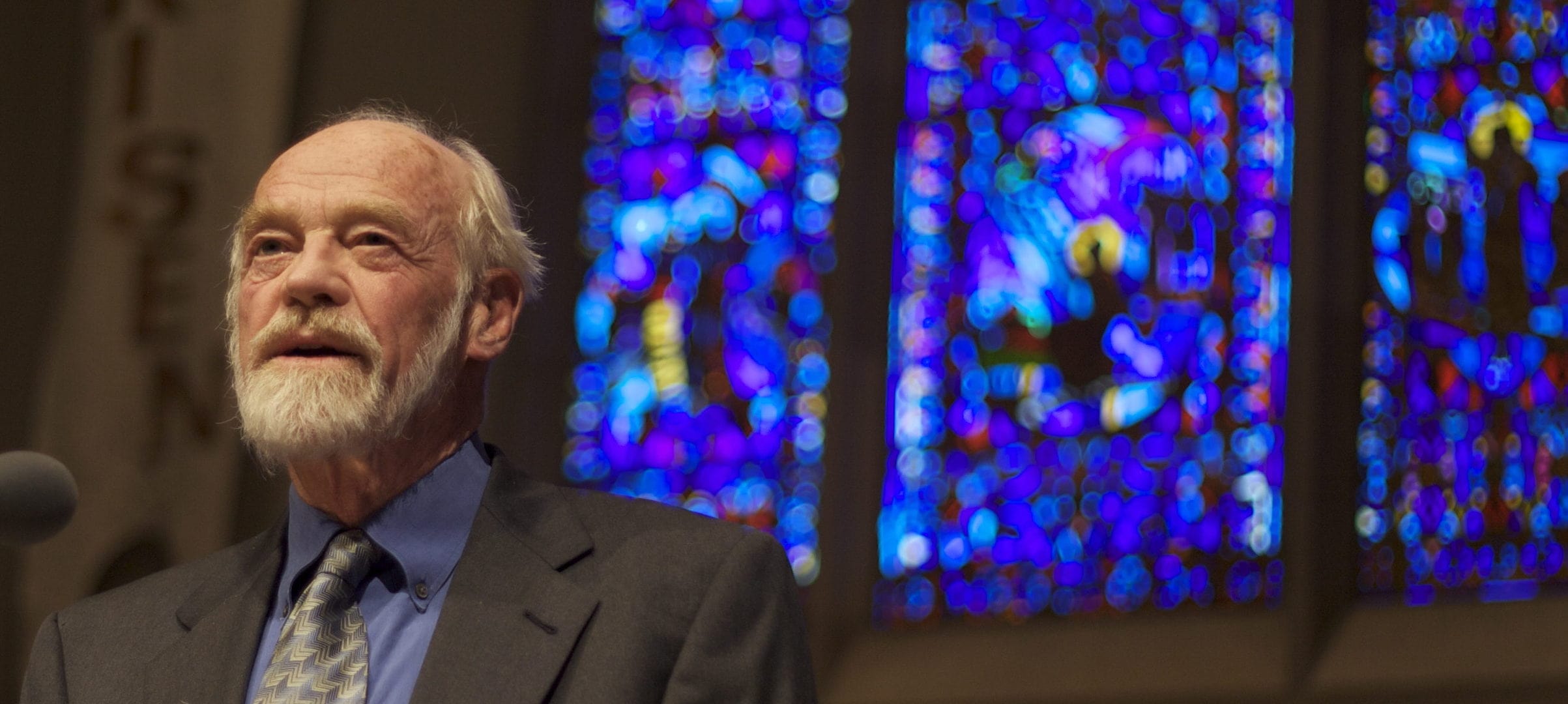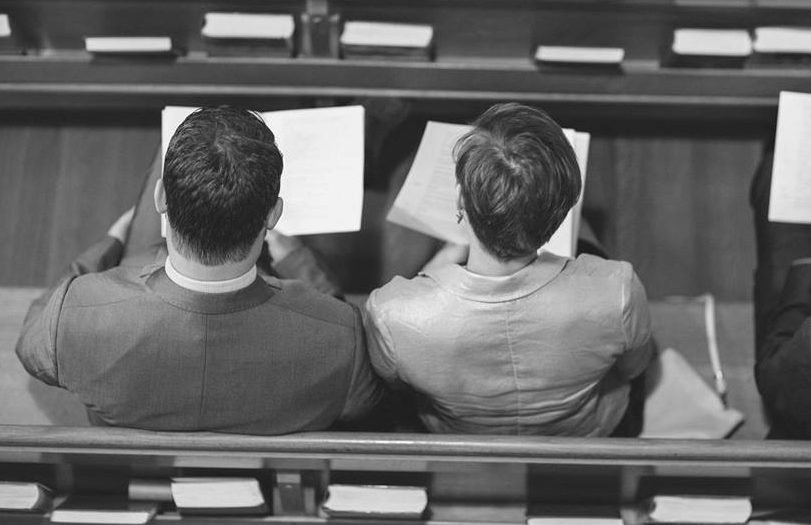The Lenten Season is just around the corner. It will begin on Ash Wednesday. We are about to enter into a season in which we reflect upon our mortality, brokenness, and sinfulness. But we do this with a sense of anticipation and hope because we’re preparing for the ever-present reality of Easter. Because of this, Lent is known as a period of “bright sadness.” Just as the dark days of winter give way to the increased sunniness of spring, so too does the mess of our condition as broken people give way to something new and beautiful in Jesus.
Lent is a major Christian festival celebrated by Christians around the world and throughout the ages. It lasts 40 days (well, 46 if you include Sundays, but let’s not worry about that for now). Why 40? Isn’t that a little excessive? Many fasts in Scripture are 40 days long. Most importantly, Jesus fasted for 40 days in the wilderness. Lent is an ode (of sorts) to this time. It’s wilderness space. We enter a barren space to depend on God rather than earthly comforts.
Unsurprisingly, Lent is well known as a season of fasting. In most expressions of Lent the fasting involves food. Orthodox Christians essentially turn vegan. Catholics give up select foods on select days. Many forms of Protestantism encourage a commitment to fast in some capacity. In recent years, many have pressed the fasting should expand beyond food: be it abstaining from television, social media, working out, or some other activity that occupies a good deal of your time and mental space.
There are two questions I want to address.
First, how do we do Lent well?
And lastly, how should we participate in Lent?

How do we do Lent well?
When it comes to fasting it’s easy to misunderstand its purpose. Fasting is not about what we can give up for God. Fasting is not about finding God’s approval or earning his presence. Nor is fasting about asceticism. Fasting is about connecting with our neediness for God. It’s about stripping down into that vulnerable space where we find that our hearts are broken, our souls are weak, and our hunger can only be satiated by God himself. Fasting is not about what we can give up for God but about opening ourselves up into the realities of what God has given to us.
The point of fasting during Lent is to create space in our lives where we connect with our need for Jesus.
The point of fasting during Lent is to create space in our lives where we connect with our need for Jesus. If we’re brave enough, fasting helps us come to see that our deepest need is Christ crucified. Fasting helps us enter into the space where we receive what God so freely gives: his beloved Son crucified. Fasting prepares us for the glorious reality of Easter: the present-risenness of Christ.
Technically, every day, every moment, is better than Easter Sunday. Christ offers himself to us daily. Again, and again, and again — with more certainty than the sun rising. The purpose of the Christian calendar and all its feasts is not to truncate this truth, but rather to discipline us to live more fully into it. It is a way of living into the fullness of the gospel.
Doing Lent well means laying down our tendency to perform. It means acknowledging in our hearts how prone we are to thinking there is something we must do to earn God’s love. It means exposing our rampant self-sufficiency and embracing our neediness.
Doing Lent well is more about creating space in our lives to encounter God than giving up things we hold dear. It involves giving up things we hold dear solely for the reality of creating this space.

How should we participate in Lent?
I am not opposed to fasting from social media, working out, Netflix, or any other activity/discipline that occupies an excessive amount of time and space in your life. The main question you should ask once you’ve decided what you want to give up is what you will fill this newly found time and space with? If you fill it with something other than a discipline that helps you reach out to God, you’re missing the point. You may as well keep posting to your Instagram and enjoy being connected to others.
The point of giving up something we use with frequency is to have frequent reminders throughout the day of our need to reach out to God rather than our phone, or our wallet, or our plates.
We must remember the prophet Isaiah’s warning from God, “This is the kind of fasting I want: Free those who are wrongly imprisoned; lighten the burden of those who work for you. Let the oppressed go free, and remove the chains that bind people.” (Isaiah 58.6). As we make more space and time in our lives, one of the primary ways we can connect with God is by seeking justice and mercy for others.
With Isaiah’s warning in mind, I also want to strongly recommend that you include abstaining from food in some capacity during this Lenten season.
When we give up food in some capacity, it’s a constant reminder that there is more to life than food and drink.
Fasting is traditionally from food because our stomachs have surprising power over our lives. In a critique of Philippi’s culture, Paul writes that “their god is their belly.” To the Corinthians Paul writes that if the resurrection is a hoax, we should give into the philosophy of culture, “let us eat and drink, for tomorrow we die.” It’s of little surprise that near the end of his 40 day fast, Satan tempts Jesus with bread. But what is Christ’s response? “Man shall not live by bread alone but by every word that comes from the mouth of God” (Matthew 4.4).
We need food to live. We eat out of need (and out of gluttony). When we give up food in some capacity, it’s a constant reminder that there is more to life than food and drink — and that our ultimate sustenance is God. As you hunger for God and come to him again and again, you will be fed and your desires will change: you will want to seek justice and mercy.
I have not abstained from food every Lent. I’ve tried many different things. But many years have included food. The first time Julia and I celebrated Lent together was when we were dating. We gave up sugar. It was brutal. We failed on a few occasions. Our honeymoon landed during Lent, we were going to give up sugar again but decided it would be against the spirit of celebrating being newly married. During the second year of our marriage, we decided to eat only beans and rice for forty days. Toward the end, we were drizzling our meals with honey or anything to add some interest. The next year we tried beans and rice again and gave up after a week.
Each time our fast has involved food I’ve noticed how much the fruit of the spirit depends on nutrition. It’s made me wonder: is my character really this dependent upon my blood sugar levels? If it is, is it truly a work of the Spirit? In my hanger, grumpiness, snarkiness, and other dispositions that arise because I can’t have my favourite sweet treat, I’m given the choice: will I depend on myself, or will I turn to God in my weakness?
I’m sharing our experiments in Lent not to point to our success but to our failures. Over the years I’ve learned that I want to keep Lent to the best of my abilities. If I fail, which I undoubtedly will, I am once again faced with a dilemma: do I give up? Or do I turn to God and try again, accepting grace in the process?
I once heard a story about a well known preacher, Steve Brown, preaching an Ash Wednesday sermon. He said something along these lines, “I hope on the last day of Lent that you fail. That you overindulge. That you fall short of your goal. I hope that any pride that had been accumulating crumbles before you. Only so that you can relish in grace. After all, isn’t that what Lent is supposed to be preparing us for?”
If you fail, may it be for grace. If you succeed, may it be for grace.




